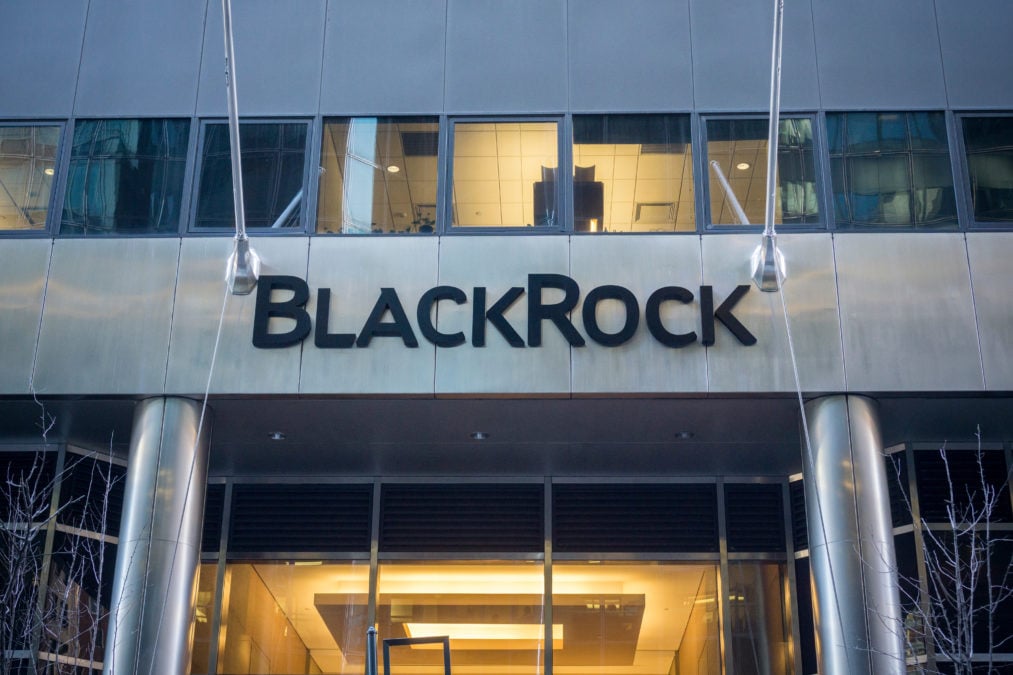BlackRock’s planned tokenized fund launch “brings legitimacy” to public smart contract chains like Ethereum, according to analysts at research and brokerage firm Bernstein.
The world’s largest asset manager’s choice to use the public Ethereum blockchain instead of private chains, like JPMorgan’s Onyx, broadens interoperability and programmability in a space so far only seen as “retail casinos,” Gautam Chhugani and Mahika Sapra wrote in a note to clients on Tuesday.
“Tokenised fund redemption could be on-chain with stablecoins (e.g USDC) integration. New asset classes (bonds, equities, fx stablecoins) could lead to interoperability between asset classes on-chain and scope for further programmability based on deal contract conditions,” they said. “The plumbing built for retail speculation starts to drive institutional utility.”
BlackRock unveiled plans for its tokenized money market fund earlier this month with financial services firm Securitize, deepening its foray into digital assets after launching a spot Bitcoin exchange-traded fund in January.
According to a U.S. Securities and Exchange Commission filing, the BlackRock USD Institutional Digital Liquidity Fund (BUIDL) is a liquid fund investing in U.S. Treasury bills, repurchase agreements (short-term borrowing agreements for dealers in government securities) and cash, but did not provide a launch date.
Securitize would act as the tokenization platform, and transfer and placement agent. Anchorage, Coinbase, BitGo and Fireblocks would be ecosystem partners facilitating custody and settlement of digital assets, and BNY Mellon would facilitate interoperability with traditional markets by custodying the fund’s assets, the analysts explained.
Implications for the crypto industry
Beyond their legitimacy argument, Chhugani and Sapra said that while tokenized funds are nothing new — Franklin Templeton launched a tokenized money-market fund in 2021 — BlackRock bringing in partners from both traditional and crypto worlds would encourage more traditional institutional customers to adopt on-chain funds, with reduced friction.
“This would act as the first major test case for institutional holders to experience 24*7 instant settlement benefits of the blockchain with increased transparency and improved capital efficiency, at reduced operating costs,” the analysts said. “For an institutional holder using liquid funds as margin/collateral, there are significant benefits to counter-parties with increased transparency and capital efficiency from instant settlement.”
Tokenized funds could also become a new growth category for asset managers, Chhugani and Sapra added — evolving their participation from simple investment via ETFs to building on-chain products as a commercial revenue and cost-saving opportunity.
BlackRock’s BUIDL token
A token called BUIDL was created on March 5 on the Ethereum blockchain, according to Etherscan. It has a maximum quantity of 100 tokens, but so far, only one holder.
BUIDL is designed to offer a stable value of $1 per token, paying qualified investors dividends in the form of tokens representing U.S. dollar yield.
“Tokenization can be seen as the next evolution of financial markets, similar to the ETF wave of the last 2 decades,” Chhugani and Sapra concluded.
Last week, the Bernstein analysts raised their year-end bitcoin price target to $90,000, expecting a “mild” halving impact on miners.
Disclaimer: The Block is an independent media outlet that delivers news, research, and data. As of November 2023, Foresight Ventures is a majority investor of The Block. Foresight Ventures invests in other companies in the crypto space. Crypto exchange Bitget is an anchor LP for Foresight Ventures. The Block continues to operate independently to deliver objective, impactful, and timely information about the crypto industry. Here are our current financial disclosures.
© 2023 The Block. All Rights Reserved. This article is provided for informational purposes only. It is not offered or intended to be used as legal, tax, investment, financial, or other advice.


